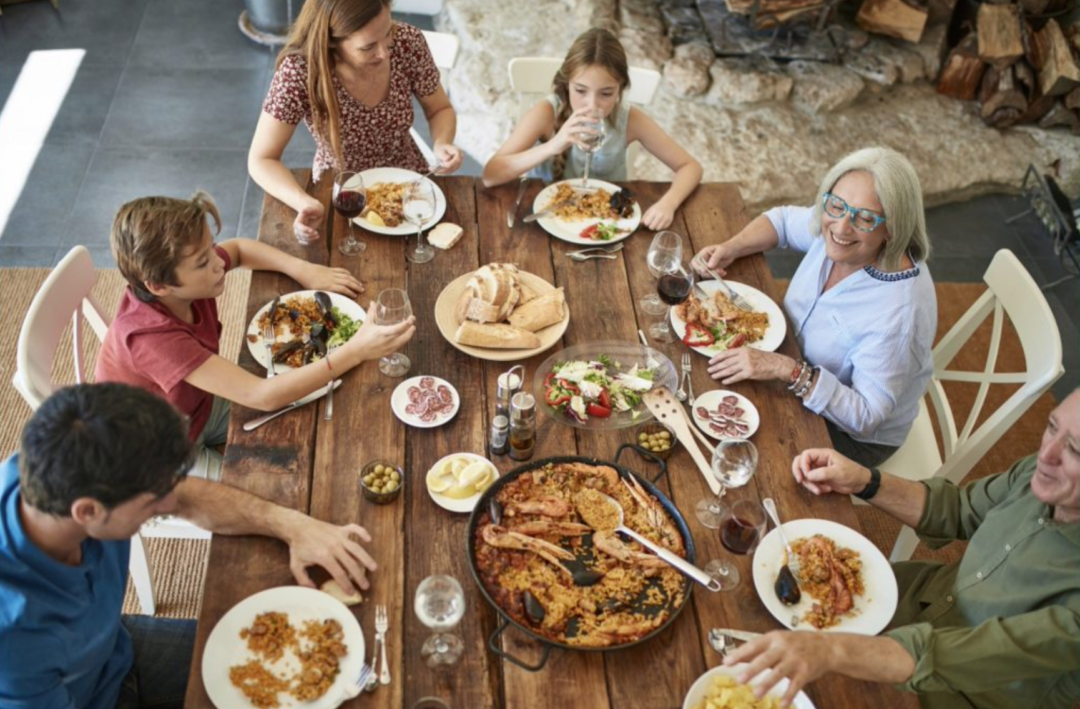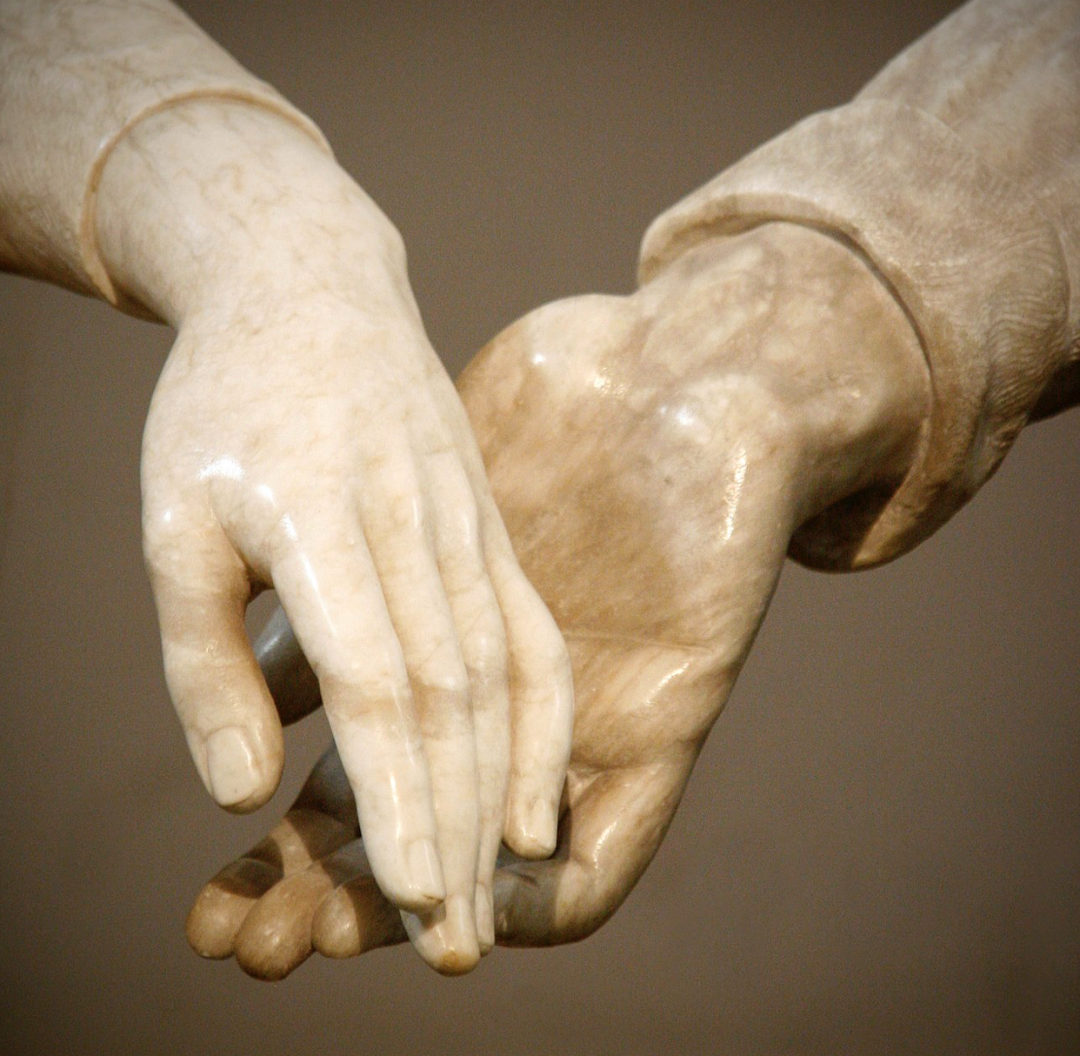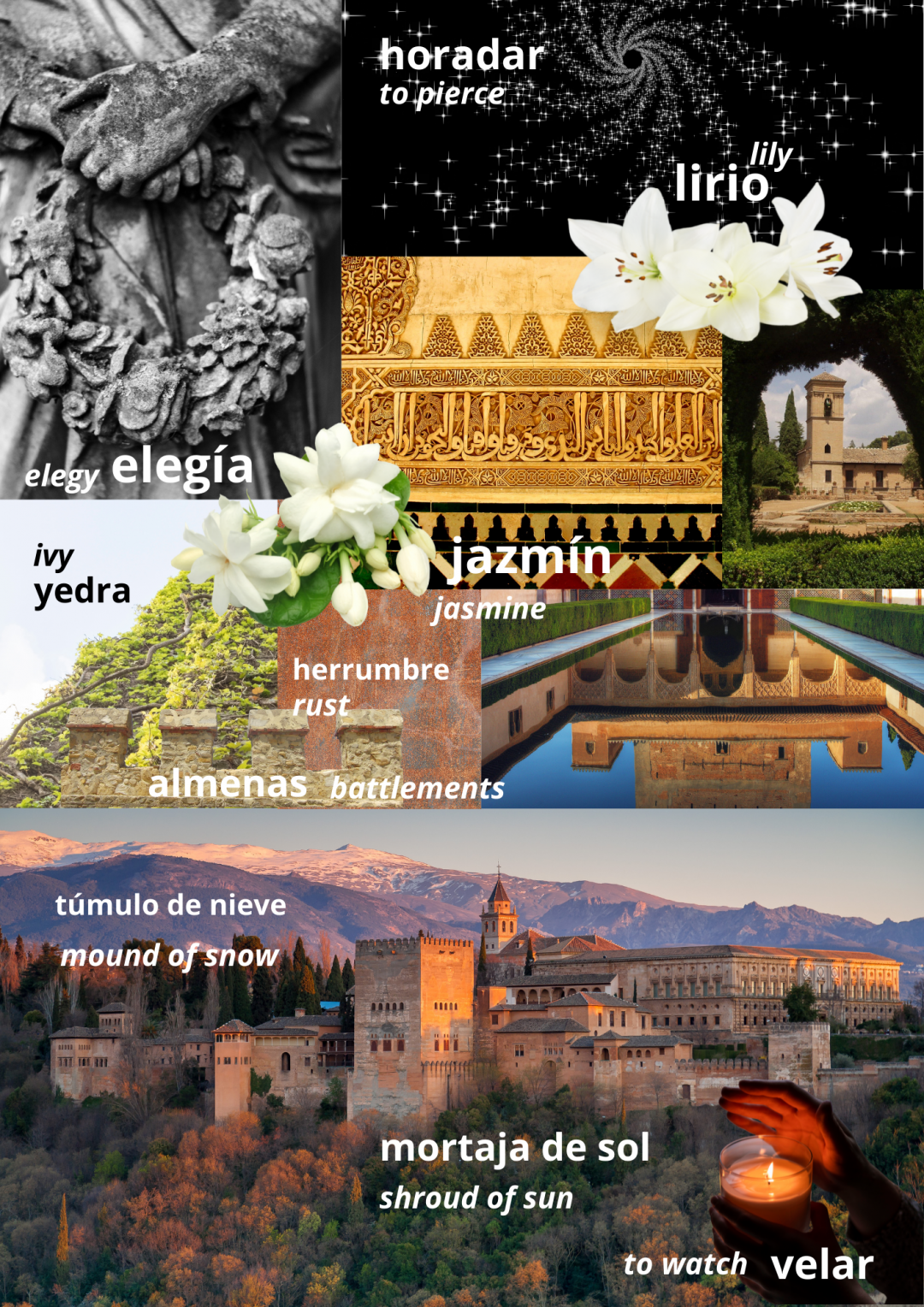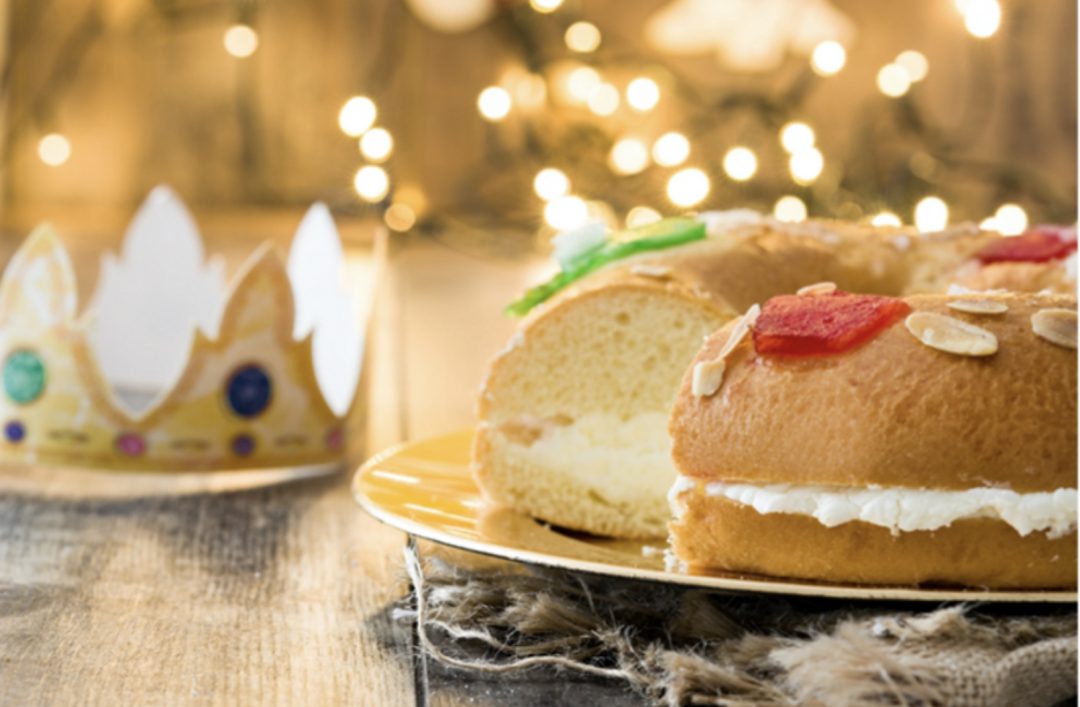Spanish Christmas Vocabulary Part I:
el belén: Spanish word for Bethlehem that means “nativity scene”
la Nochebuena: dinner on December 24
los villancicos: christmas carrols
el turrón: nougat
los polvorones: shortbread made of flour, sugar, milk and almonds
los Reyes Magos: the three Wise Men
In Spain, Christmas time lasts two weeks in which children have holidays at school and the end of the first term of school is marked. The well-known Catholic tradition of the country influences these celebrations, already converted into another part of the shared Spanish culture.
The decoration of lights in the street, shopping centers and houses usually starts at the beginning of the month on the long weekend of December 6 (day of the referendum that approved the current Constitution of 1978) and on December 8 (day of the Virgin Immaculate Conception) .
Normally, in every house the Christmas tree and the nativity scene are placed, the representation of the birth of Jesus Christ with small figures, composed mainly of: the Virgin, Saint Joseph, the Child, the mule, the ox, the shepherds, the angel, the star and the three Wise Men. Some people install wells and rivers with real water or include lights to create night and day, there are no limits, you can be as creative as you want. In Catalonia, for example, the figure of the Caganer is very common, it is a shepherd hidden in bushes pooping . It is a tradition to create and see these artistic works, some are exhibited publicly and can be visited.
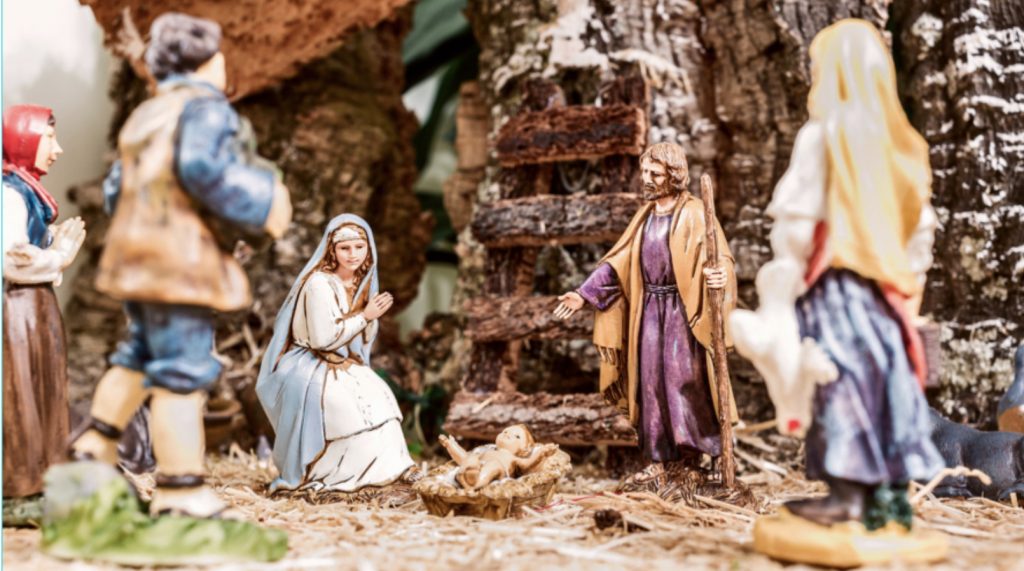
Also, before the start of the festivities, during the month of December company dinners are held in restaurants that traditionally give rise to great anecdotes to remember.
Christmas begins officially December 22, with the Christmas Lottery, colloquially called el Gordo, because it is the biggest money prize of the year. That day, from very early on, people are glued to the television or radio listening if the children in charge of taking the numbered balls sing the number of their ticket.
Spain is a country that believes in luck and plays the lottery a lot. A Christmas lottery ticket costs 20 euros and if you are a winner you must give a percentage of the prize to Hacienda, the agency in charge of collecting taxes.
The first party we celebrate is Christmas Eve, December 24, and we have dinner at home with the family. A special menu is prepared with starters (ham, cheese, canapés, etc.), seafood, soup, meat or baked fish … each house has its own tradition.
In the desserts, typical Christmas sweets such as polvorones and turrón are eaten.
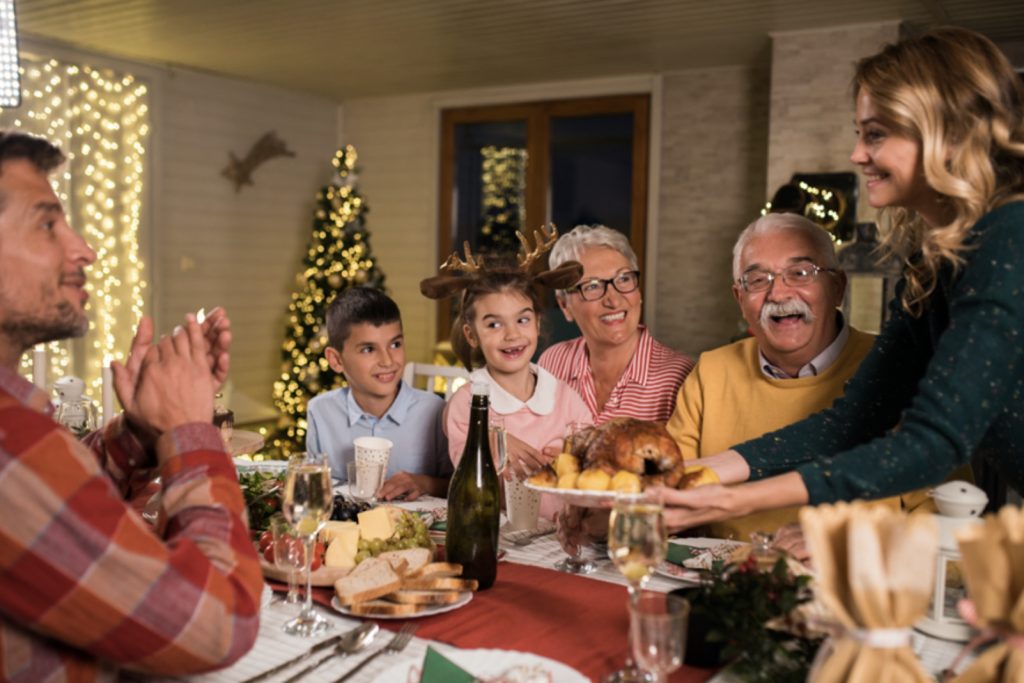
The goal is to gather the whole family around a table where you eat and drink a lot. Singing Christmas carols with the family and in schools is also a tradition, all the lyrics refer to the birth of Jesus in Bethlehem:
“Campana sobre campana
Asómate a la ventana
Y sobre campana una
Verás el niño en la cuna“
“Bell over Bell
Get close to the window
And on bell one
You will see the child in the crib”
“Con mi burrito sabanero, voy camino de Belén
Si me ven, si me ven, voy camino de Belén“
“With my sabanero donkey, I’m on my way to Bethlehem
If they see me, if they see me, I’m on my way to Bethlehem”
“El camino que lleva a Belén
Baja hasta el valle que la nieve cubrió
Los pastorcillos quieren ver a su Rey
Le traen regalos en su humilde zurrón
Ropo pom pom, ropo pom pom
Ha nacido en un portal de Belén
El niño Dios”
“The road that leads to Bethlehem
Go down to the valley that the snow covered
The shepherds want to see their King
They bring him gifts in his humble satchel
Ropo pom pom, ropo pom pom
He was born in a portal of Bethlehem
The child God “
“Arre borriquito, arre burro arre
anda más deprisa que llegamos tarde
Arre borriquito vamos a Belén
que mañana es fiesta
y al otro también”
“Arre borriquito (little donkey), arre donkey arre
go faster because we are late
Arre borriquito (little donkey), let’s go to Bethlehem
that tomorrow is a party
and the other too”
“La Virgen está lavando.
Y tendiendo en el romero
Los angelitos cantando
Y el romero florecido
Pero mira cómo beben los peces en el río
Pero mira cómo beben por ver al Dios nacido”.
“The Virgin is washing
And tending in the rosemary
The little angels are singing
And the rosemary blossomed
But watch the fish drink in the river
But look how they drink to see the God born”.
The 25th is the official day of Christmas, after dinner the night before, the family gathers again to eat a special menu again. Many children open a gift that Papá Noel (Santa Claus) has left them, but it does not happen in all families.
Due to media influence, the same with Halloween party, Santa Claus has also been present in many houses since the 90s. However, he still does not unseat (remove his seat) the Three Wise Men, who officially bring the gifts in camel on the night of January 6 to all Spanish houses.
Then the 28th is the day of the Holy Innocents, jokes are played and there is false news. Be careful because people will surely try to “tease you”, that is, they will try to deceive you or make you believe something that is not true.
And the festivities do not end here, we have Christmas “for a while”, we Spaniards love spending time with family and friends, we will always try to make that time as long as possible! Read on.

